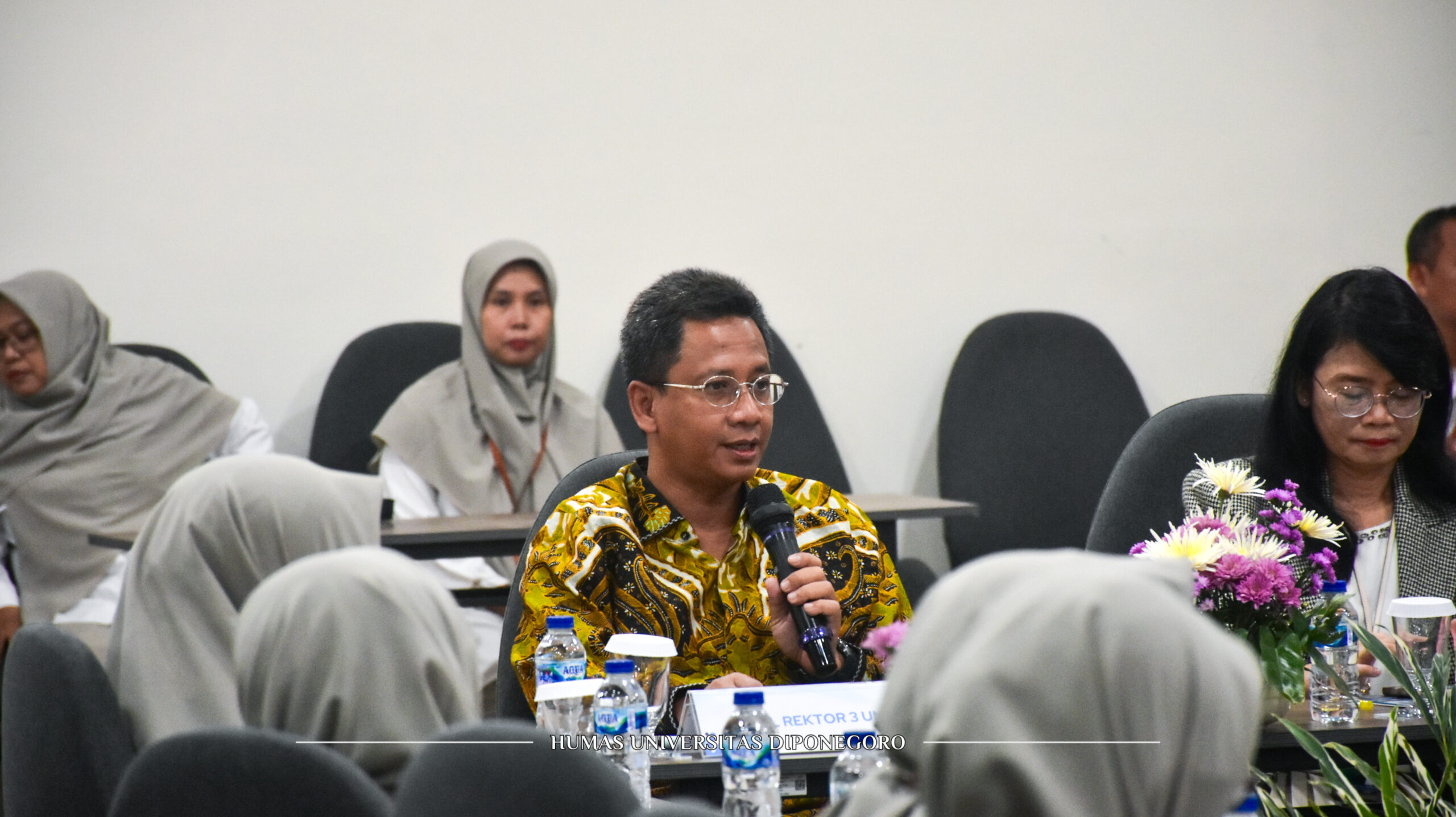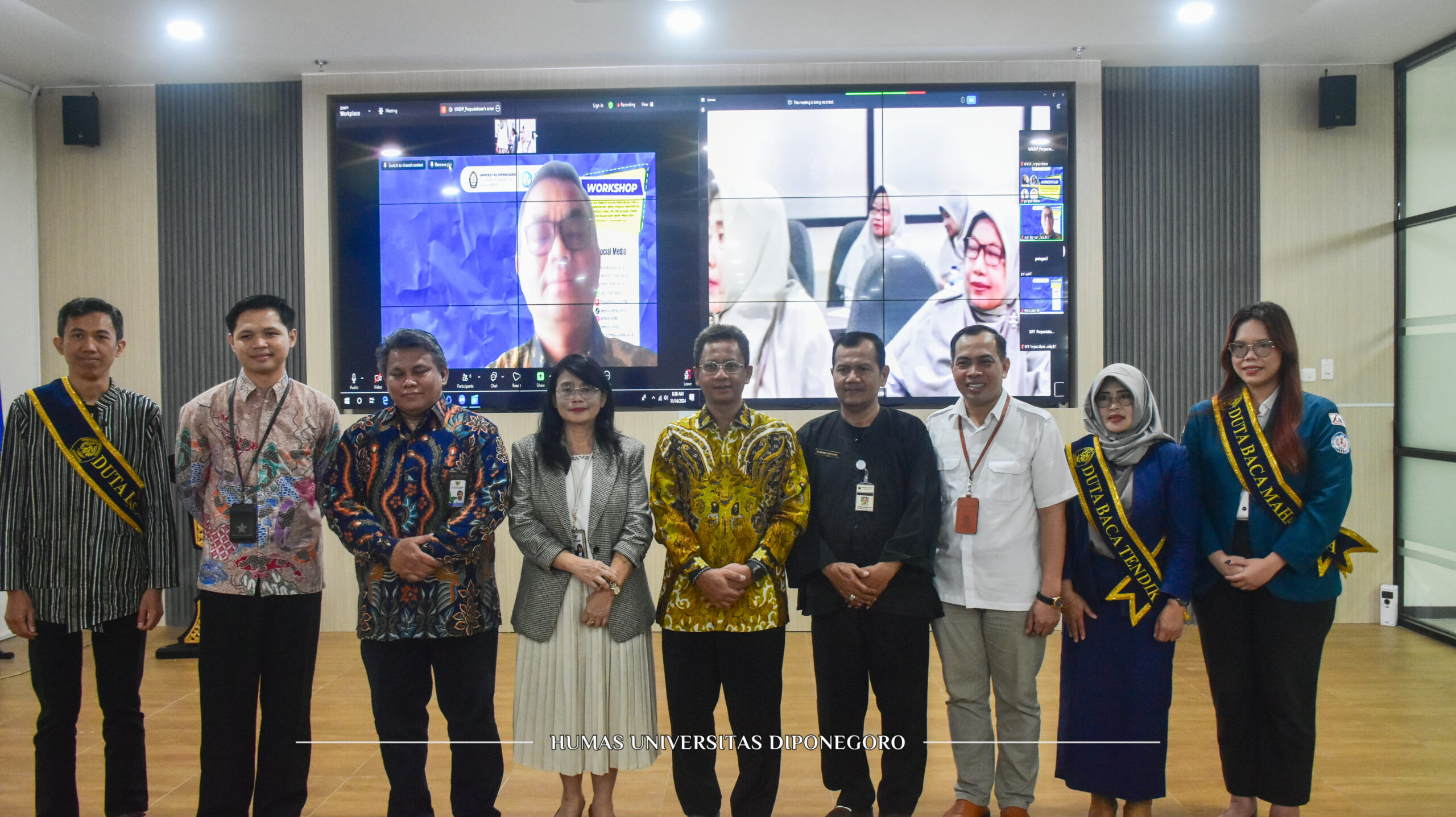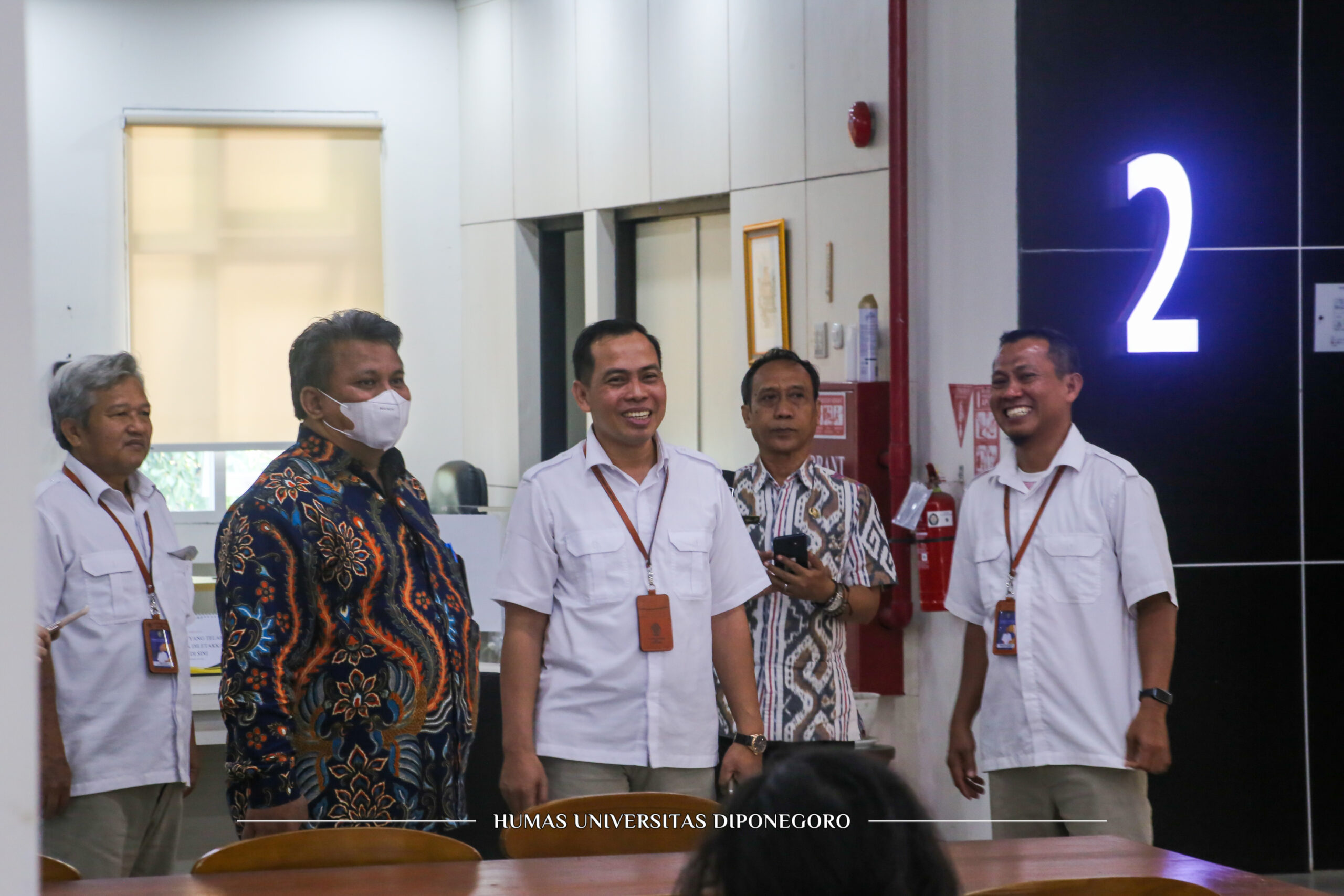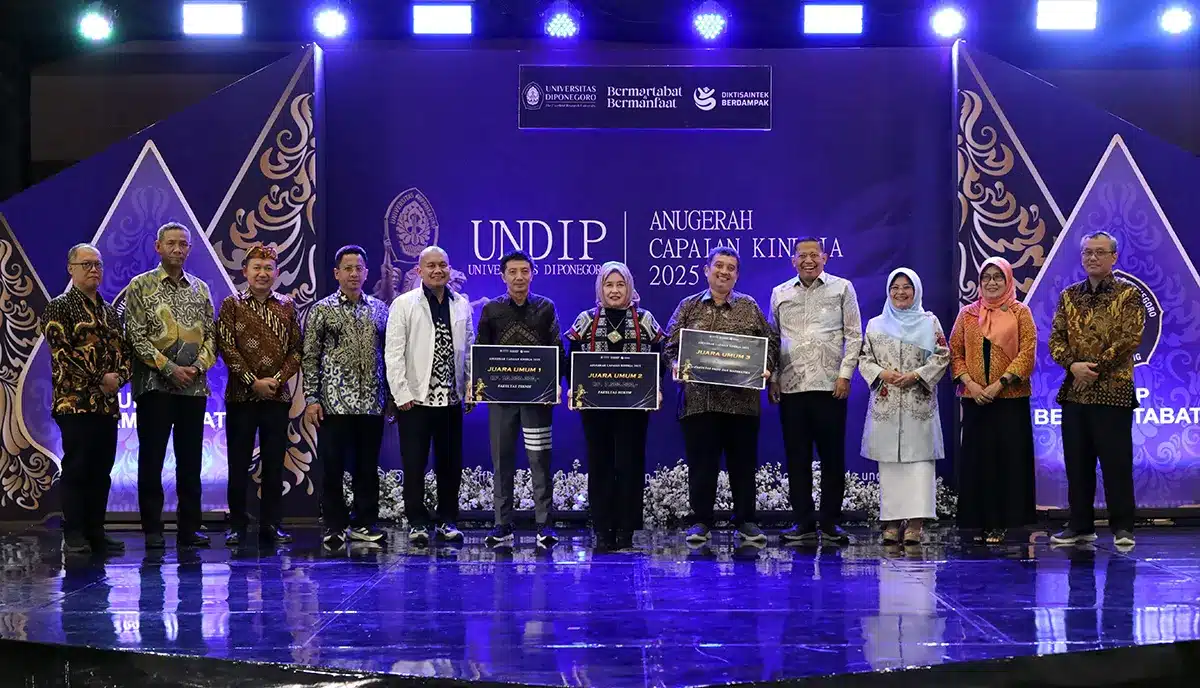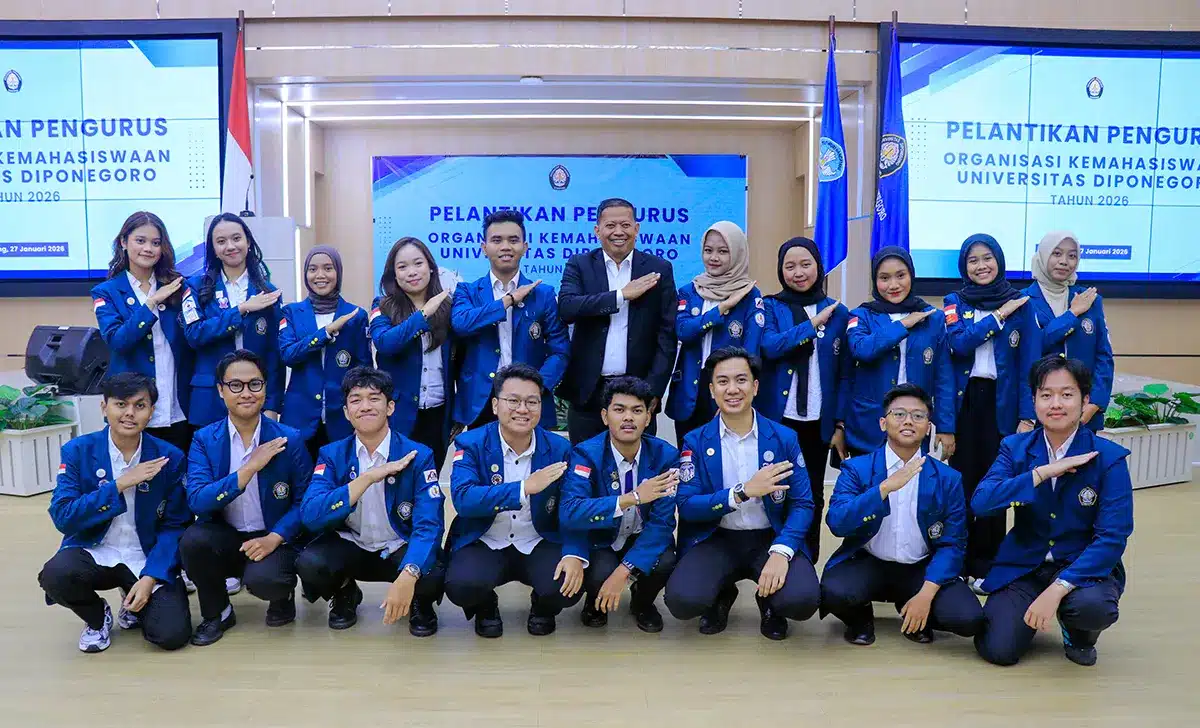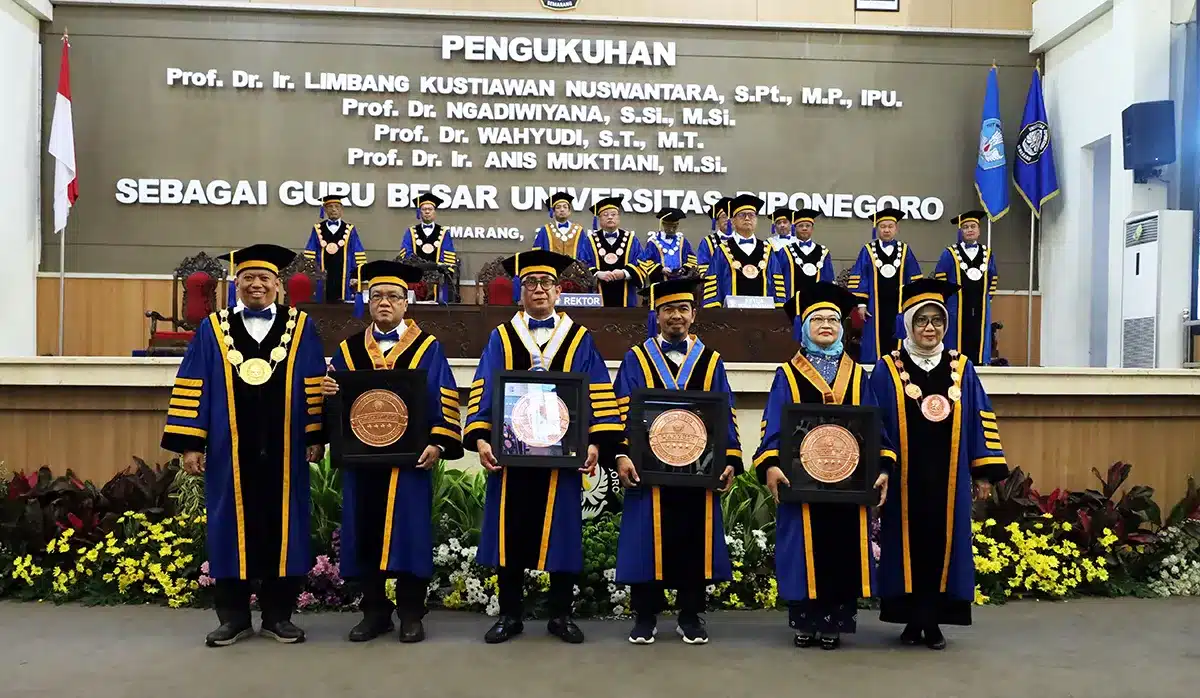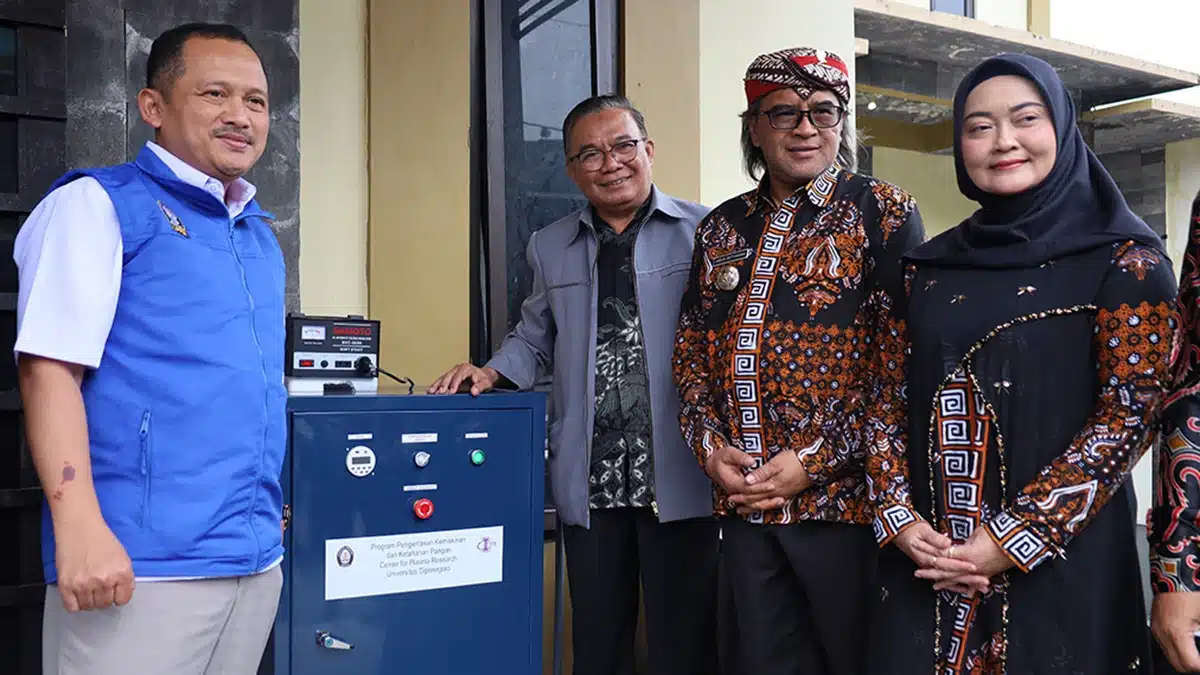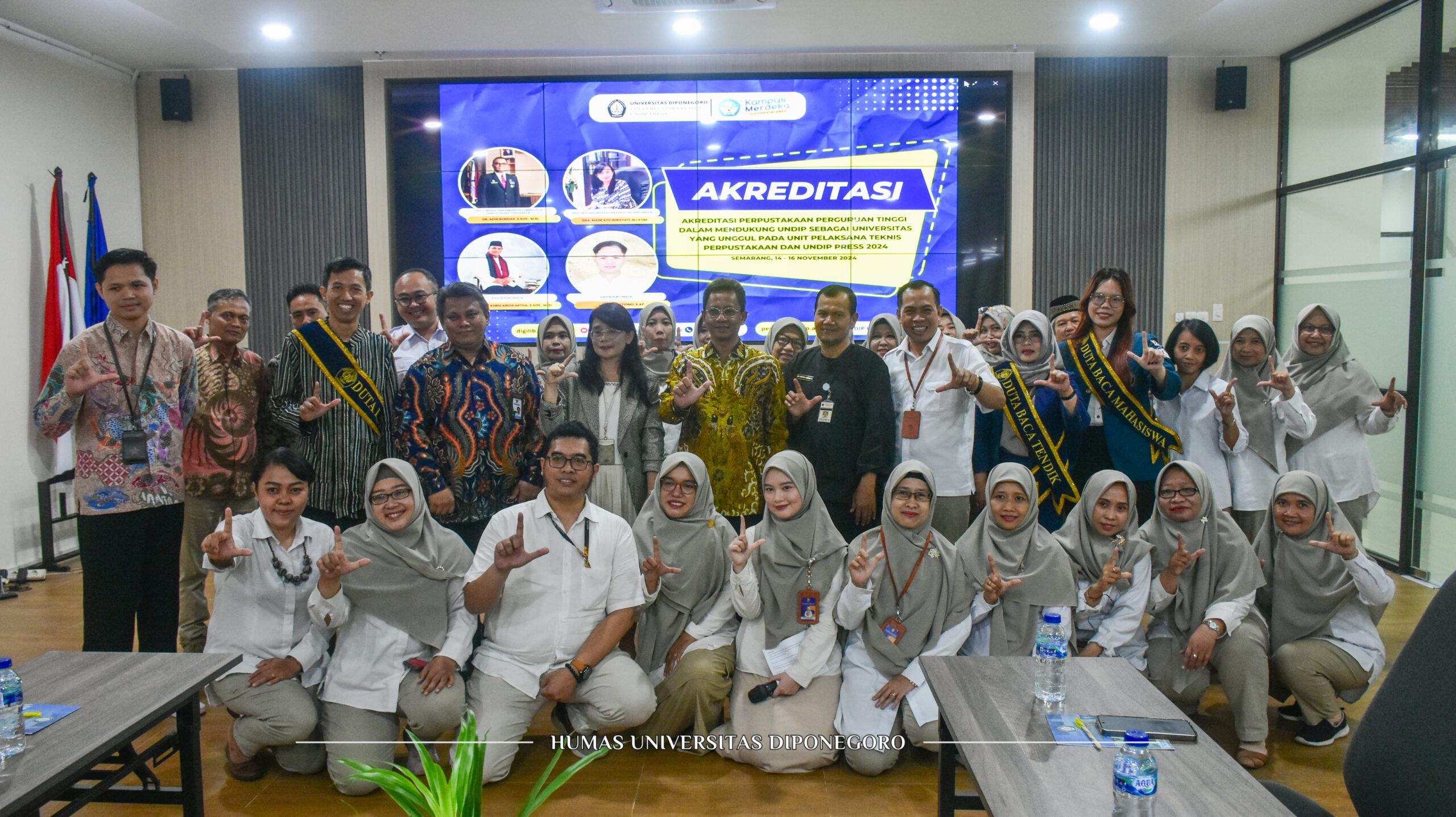UNDIP, Semarang – As part of its efforts to enhance public trust (users) in library performance and ensure consistency in the quality of library activities, particularly within Universitas Diponegoro (UNDIP), the UPT Library and UNDIP Press successfully conducted a Higher Education Accreditation Assessment. The assessment was carried out by the accreditation team from the Library Accreditation Body – National Library of the Republic of Indonesia (LAP-PNRI) at the Meeting Room (4th floor) of the UPT Library and UNDIP Press, UNDIP Tembalang Campus, on Thursday (11/14). The event, held every five years, was attended by 66 participants in a hybrid format via Zoom meeting.
Library accreditation is defined as a series of formal recognition processes by the National Library, stating that the library institution has met the requirements for library management activities. As such, the UPT Library and UNDIP Press are considered an integral part of higher education activities, including education, research, and community service. They function as a learning resource center to support educational goals in universities, as outlined in the National Library Standards (NSP) under the Regulation of the National Library of Indonesia No. 13 of 2017: 5b.
In his opening remarks, Vice Rector III for Human Resources, Information Technology, Law, and Organization, Prof. Dr. Adian Fatchur Rochim, S.T., M.T., expressed gratitude to all involved parties. “We extend our highest appreciation to lecturers and staff in the library, particularly faculty librarians, who consistently provide inspiration, insights, and valuable input,” he said.
“This assessment is a valuable opportunity for UNDIP to evaluate its achievements and improve the quality of services offered to the academic community at the library,” added Vice Rector III.
Prof. Adian noted that during the assessment, the UPT Library and UNDIP Press team would present their accomplishments over the past few years, aiming to make even more significant contributions to UNDIP.
“May the assessment yield optimal results for the advancement of the UNDIP library. We are very open to suggestions and feedback from the national library assessors, enabling us to improve and achieve the highest standards in library services continually,” Prof. Adian concluded.
Meanwhile, Dr. Adin Bondar, S.Sos., M.Si., Deputy for Library Resource Development at the National Library, delivered his remarks via Zoom, emphasizing the importance of libraries and the National Library’s hope for UNDIP Library to foster strong synergy.
“On behalf of the National Library of Indonesia, I extend appreciation for the accreditation assessment of UPT Library and UNDIP Press in advancing higher education libraries, especially at Universitas Diponegoro. I am very proud of UNDIP,” he stated.
Dr. Adin highlighted the strategic role of libraries in education, particularly in integrating library services with institutions and libraries worldwide. He also underscored the importance of librarians in analyzing the need to deliver the best services to academic communities and society.
“Library transformation is no longer about being a repository of knowledge. Instead, libraries serve as active open spaces and creative hubs that enhance the quality of Indonesian society. Ultimately, the service models we develop can elevate the quality of higher education, incorporating libraries as part of the educational quality assurance system and proposing library accreditation as a standard of quality assurance,” Dr. Adin explained.
The assessment was led by the National Library’s assessors, Renda Khris Ardi Artha, S.Sos., M.Si., alongside the Director of Library Standardization and Accreditation, Dra. Made Ayu Wirayati, M.I.Kom., and accompanied by Trimo Septiono, S.A.P. They officially launched the reaccreditation assessment activities for UPT Library and UNDIP Press.
During the assessment, the Head of UPT Library and UNDIP Press, Suwondo, S.Hum., M.Kom., and his team guided the assessors on a tour of various faculty libraries, including the Vocational School Library, Faculty of Law Library, Faculty of Humanities Library, and Faculty of Social and Political Sciences Library. Each library team, along with relevant officials, warmly welcomed the assessors. (DHW)
